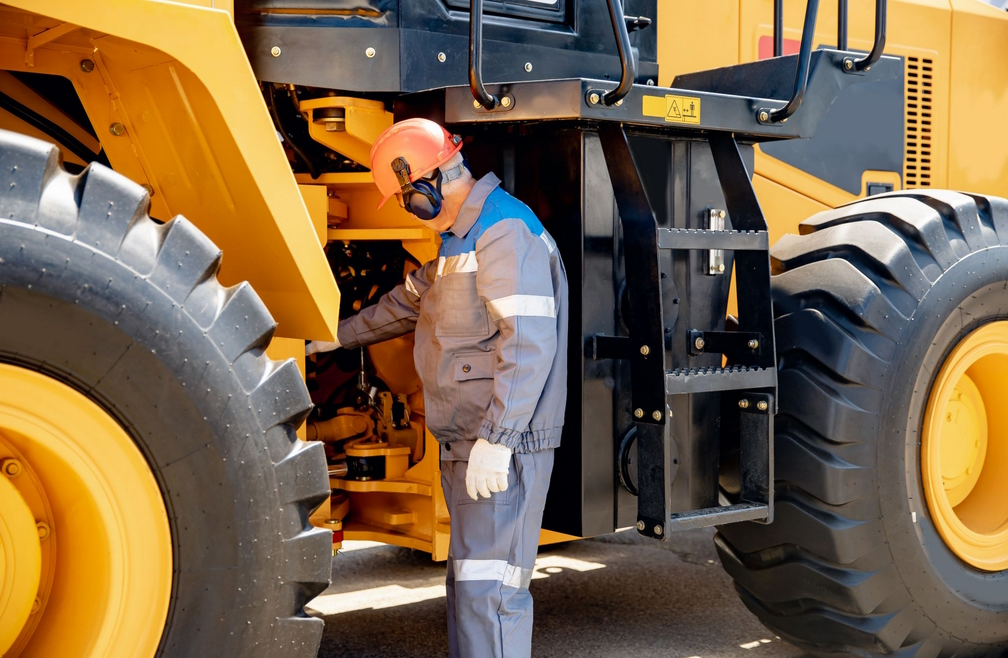5 Maintenance Tips For Heavy Equipment

Heavy equipment are heavy-duty vehicles frequently used for earthworks in the construction industry. Examples are backhoes, excavators, bulldozers, scrapers, loaders, and graders.
Although these equipment are built for earthworks, their efficiency in meeting your needs depends on how you maintain them. Proper handling allows you to enjoy their benefits to the fullest and for an extended period.
How do you maintain heavy equipment? It's a question you might ask. Below are some maintenance tips to guide you:
- 1. Create A Maintenance Schedule
Failing to plan is planning to fail; it's an adage you want to embrace in maintaining your heavy equipment by creating a maintenance schedule. It's a plan on how you'll keep your heavy equipment. It'll guide your team in the process.
The first thing to figure out is what to inspect during a maintenance check-up. Find this information in the equipment's manual; manufacturers provide this as a guide.
Using this information as a checklist for all your procedures is best. An example of the checklist could be painting every two years with the aim of preventing metal corrosion.
The manual will also guide on the intervals of the maintenance procedures, often given in mileage. Ensure you adhere to the time intervals of the letter. Consider marking these schedules on your calendar, preferably with reminders to ensure you don't miss important ones.
- 2. Use The Heavy Equipment Correctly
One thing that leads to your equipment's detriment is letting it bite more than it can chew. It's a practice quite common, especially in projects with minimal tools for the job.
When you use a tool for the wrong purpose, strain and frequent wear and tear are possible since it wasn't designed for that purpose.
The improper use of heavy equipment also extends to the speed of operation and load limits.
Generally, ensure you use each piece of heavy equipment for the right purpose, adhering to all stipulated limits set by the manufacturer.
- 3. Always Use Quality Parts
Quality gives value for money by serving you for a long time. It's an aspect you want to ensure with your heavy equipment.
Maintenance enables you to identify damaged parts that require repairs and replacements. Quality compromise arises with replacements, where you use substandard spare parts.
Most of the time, it happens unknowingly, where you source from a vendor whom you believe is legitimate, whereas it's the opposite.
Manufacturers often guide on the specifications to adopt for spare parts. Please adhere to this since recommended works harmoniously with your chosen heavy equipment.
As you source these spare parts, ensure it's from a reputable dealer. Looking at their reputation will help you gauge their authenticity.
Alternatively, get the parts from the manufacturer. Where you need to import, ensure you order before your next maintenance schedule, factoring in the shipping period.
- 4. Get A Qualified Mechanic
A mechanic is a personnel that can make or break your maintenance practices. You might have a schedule, but how effective will the mechanic execute each activity? Wrongly changing the engine oil will harm your heavy equipment, making your maintenance efforts futile. Hence, always work with a qualified mechanic.
Experience is one of the aspects that determines the mechanic's qualification. Ensure they have many years of experience maintaining heavy equipment, preferably five or more.
It'd help to look at their reviews; you'll find this information on their website or with a general Google search. Watch out for reviews that touch on the quality of services; ensure there's nothing negative about the services offered.
- 5. Train Your Team
As a heavy equipment contractor, there's a likelihood you barely operate it. Your workers are the ones who'll use it daily to fulfill their responsibilities.
With this in mind, train your team, especially the operators and maintenance personnel, to maintain the heavy equipment.
The manual should be handy to teach them how to identify issues with heavy equipment, like the engine sound and gearstick movement. This insight will help them maintain the tools better.
Concerning the maintenance personnel, train them in handling minor repairs that don't require the attention of a mechanic.
Highly consider having an expert train your team on the dos and don'ts of handling and maintaining heavy equipment. They're better placed with insight since they're experts.
Ensure good rapport between the operators and maintenance personnel, as they must work together to maintain the equipment properly. Holding regular team-building sessions can help build rapport.
Conclusion
Maintaining heavy equipment is a necessary practice. It ensures your use of the tools doesn't depreciate them. Instead, you'll keep them at their best, enabling them to meet your needs.
The discussion above highlights the maintenance tips to adopt for your heavy equipment. Be sure to implement them.








